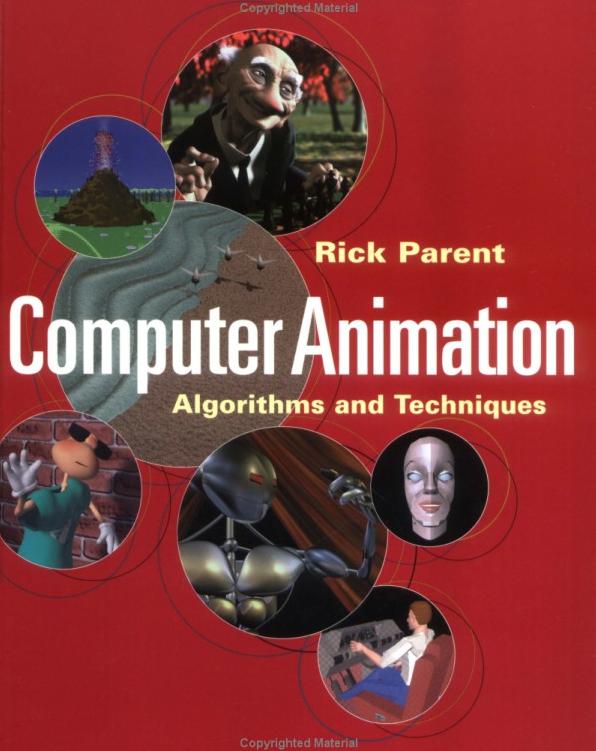Course Description
- Main techniques covered in this course include:
- Keyframing, story-boarding,
- Kinematics, physically based dynamics modeling,
- Motion capture,
- Scene composition, lighting, and sound track generation
- This course will teach the students about current techniques in computer animation. By the end of the course, the students should:
- have learned the computational methods for modeling of motions in the physical and virtual world,
- be able to storyboard, light, compose, and render an animated sequence,
- and be able to read and critically evaluate the current literature in computer animation.
- No formal prerequisites. However, CENG 477 Introduction to Computer Graphics is a prerequisite of the proposed course, which introduces the fundamental concepts of computer graphics which are essential in such an advanced computer animation course.
- Textbook:

Computer Animation: Algorithms and Techniques, by Rick Parent, Morgan & Kaufmann, 2001. - Reference Material:
- The Art of 3-D: Computer Animation and Imaging, 2nd Edition by Isaac Victor Kerlow.
- Advanced Animation & Rendering Techniques by Watt and Watt.
- Computer Facial Animation by Parke and Waters.
- Principles of Three-Dimensional Computer Animation by Michael O'Rourke, Revised Edition.
- SIGGRAPH papers on Computer Animation.
- Reading/written assignments (paper critics, short quizzes, or short presentations) : 20%
- Class project (teams of 2-3 students) : 50%
- Final exam : 30%
Last modified: Monday, 12 September 2011, 6:42 PM